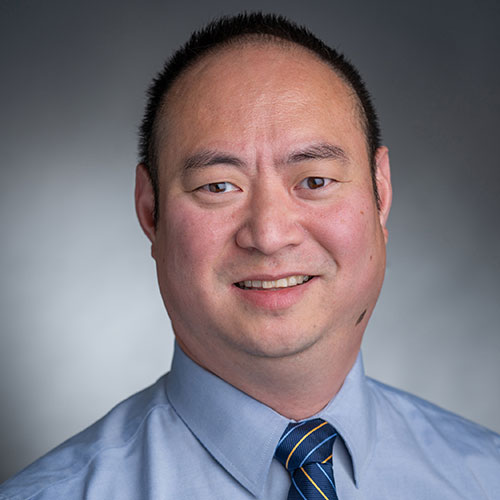-
- Find Care
-
- Visitor Information
- Find a Location
- Shuttles
- Visitor Policies
-
-
-
- Our Virtual Care Options
- Virtual Urgent Care
- Virtual Visits for Primary & Specialty Care
- Online Second Opinions
- Participate in Research
-
- Contact us
-
- For Innovators
- Commercialization Guide for Innovators
-
-
- Research News
- Alzheimer's Disease
- Artificial Intelligence
-
- Overview
-
- Overview
- Getting Started
- New to Mass General Brigham
- International Patient Services
- What Is Patient Gateway?
- Planning Your Visit
- Find a Doctor (opens link in new tab)
- Appointments
- Patient Resources
- Health & Wellness
- Flu, COVID-19, & RSV
- Billing & Insurance
- Financial Assistance
- Medicare and MassHealth ACOs
- Participate in Research
- Educational Resources
- Visitor Information
- Find a Location
- Shuttles
- Visitor Policies
- Find Care
-
- Overview
- Our Virtual Care Options
- Virtual Urgent Care
- Virtual Visits for Primary & Specialty Care
- Online Second Opinions
-
- Overview
- Participate in Research
-
- Overview
- About Innovation
- About
- Team
- News
- For Industry
- Venture Capital and Investments
- World Medical Innovation Forum (opens link in new tab)
- Featured Licensing Opportunities
- For Innovators
- Commercialization Guide for Innovators
- Contact us
-
- Overview
- Information for Researchers
- Compliance Office
- Research Cores
- Clinical Trials
- Advisory Services
- Featured Research
- Two Centuries of Breakthroughs
- Advances in Motion (opens link in new tab)
- Brigham on a Mission (opens link in new tab)
- Gene and Cell Therapy Institute
- Research News
- Alzheimer's Disease
- Artificial Intelligence
-
- Overview
-
- Overview
- Residency & fellowship programs
- Brigham and Women's Hospital
- Massachusetts General Hospital
- Mass Eye and Ear
- Newton-Wellesley Hospital
- Salem Hospital
- Integrated Mass General Brigham Programs
- Centers of Expertise
- Global & Community Health
- Health Policy & Management
- Healthcare Quality & Patient Safey
- Medical Education
- For trainees
- Prospective trainees
- Incoming trainees
- Current trainees
- Continuing Professional Development
Using the Biobank to Advance Radiation Oncology Research

In celebration of its 15-year anniversary and 150,000th participant, the Mass General Brigham Biobank — a bank of blood samples and data available to researchers studying the causes of common diseases — is running a series of articles highlighting innovative research using Biobank samples, data, and services.
The Mass General Brigham Biobank is a clinically integrated research infrastructure that provides investigators with free genomic data and low-cost samples linked to the electronic health record (EHR). The purpose of the Biobank is to foster research, advance the understanding of the causes of common diseases, and advance the practice of medicine. More than 150,000 patients have provided their consent to participate in the Biobank making it the largest of its kind in New England and among the largest linked to a healthcare system worldwide.
The Biobank continues to grow to enable Mass General Brigham to be at the forefront of investigating and implementing personalized medicine. To date, the Biobank has distributed 250,000 biosamples and genomic data for 65,000 participants to nearly 600 unique studies. Mass General Brigham investigators have published more than 400 peer-reviewed articles on research that uses Biobank samples and/or genomic data. Their research covers a wide array of disease areas, from cancer, diabetes, auto-immune diseases, psychiatric disorders, and more.
Collaborating with the Biobank to build a Radiation Oncology Cohort
BROADBAND (Brigham Radiation Oncology All-Department Biorepository to Accelerate New Discoveries) is a research study based out of the Brigham and Women’s Hospital Radiation Oncology Department. It began as an effort to obtain clinical data and biospecimens from patients undergoing radiation therapy. In 2016, a team led by David Kozono, MD, PhD, BROADBAND’s principal investigator, first used the Mass General Brigham Biobank to pioneer this effort because it would have been inefficient for them to develop a separate biorepository from scratch when an enterprise bank was already available and could expedite research findings with pre-existing patient data. Dr. Kozono’s team consents patients into BROADBAND and the Biobank at the same time, using a consent form that covers the terms of both studies. For Dr. Kozono and his team, it was a win-win situation. The Radiation Oncology research program benefits from a pre-existing repository of genetic data, health questionnaires, and patient pools. The larger Mass General Brigham research community benefits because the Biobank has more samples and data from patients receiving radiation therapy for cancer.
The collaboration of BROADBAND and the Biobank has helped improve the efficiency of radiation therapy research through the lens of personalized medicine. Within Radiation Oncology, Dr. Kozono and his team are constantly weighing the benefits and risks of the therapies they administer. Can we give enough radiation therapy to destroy the tumor, but not cause more harm than good? Dr. Kozono and his team explore how some tumors have a higher probability of being destroyed with radiation therapy while others may not react the same. Additionally, this balance is different across individuals, and the team can understand how knowledge of an individual’s genes can better personalize therapy. With the large amounts of available Biobank data, Dr. Kozono and his team seek to better understand the outcomes of different doses, frequencies, and types of radiation.

